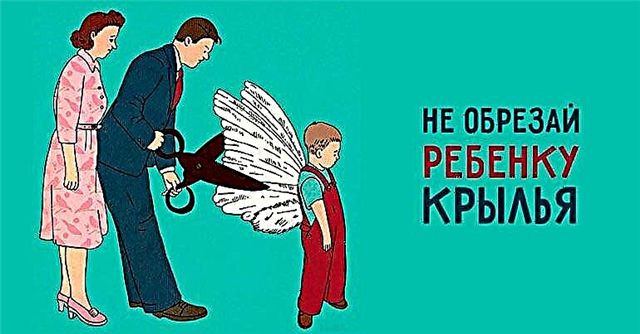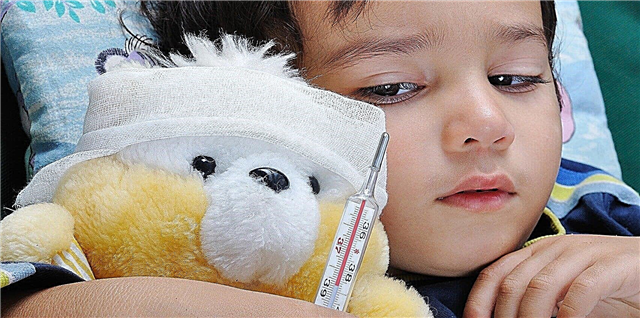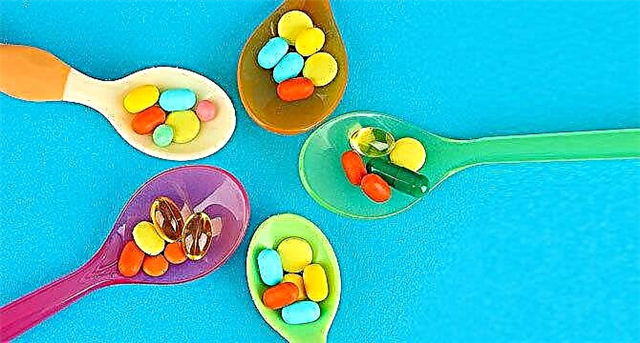
Many parents are concerned about the development of memory in a child, especially if he is in school and cannot cope with the huge amount of information that needs to be learned every day. There are many ways to practice memorization through fun exercises and games. Let's figure out what to do if a bad memory is found in a child of 8-10 years old, how you can improve and develop it.

Age norms of memory formation at 8-10 years old
Memory begins to develop from a very early age, but in the first years of life, she is involuntary.
Kids remember mainly what attracted their attention, and they do it without any effort.
However, by the age of 6-7, the formation of another type of memory begins - voluntary. It assumes the presence of a goal, that is, the child purposefully teaches something.
Thanks to the active development of voluntary memorization, a child of 8-10 years old easily assimilates information in the classroom. It is of two types:
- mechanical - memorizing in a certain sequence;
- logical - memorization through the formation of logical connections.


Using mechanical memory children learn poetry, and then reproduce all the lines in the correct order. Logical memory helps to study the material that the child subsequently reproduces "in his own words."
As the child grows and his brain grows, both the volume of memory and the number of ways of memorizing increase.
Schoolchildren begin to use special techniques to help fix objects and phenomena in memory. Among them, associations are especially often used when connections are created between phenomena, objects or events that help to cause them in consciousness at the same time.
The knowledge gained is also important for the quality of memory at the age of 9-10. The more intelligence and thinking are developed, the more material in the future the child can learn. As he grows up, he will already independently improve the memorization skill, expanding his own horizons.


Reasons for poor memorization
Experts note that memory problems in childhood are most often due to insufficient development.
If a child does not remember verses and important information from textbooks, and teachers complain of distraction and inattention in the classroom, this cannot be ignored.
In most cases the child was simply not taught how to memorize the material correctly, or was not interested in it. If you choose age-appropriate and interesting assignments, the student will quickly figure out how to use his memorization abilities.


However, in some children poor memory is a manifestation of some diseases - both physical and mental.
In addition, memory impairment is noted after exposure to stress, lack of sleep, inadequate diet, oxygen deficiency and improperly planned daily routine.
If a child spends little time outdoors, lacks valuable nutrients, is heavily loaded at school and after school, sleeps little, this will most likely affect memory and other mental processes.
How to improve?
The child's memory must be influenced at once from different sides.
- Develop it between times, in everyday life. Be sure to ask your child at the end of the day to keep things interesting at school, asking for information with many details. This will regularly train your memory and logical thinking. At first, the child may talk confusedly, but over time, the description of the day will become coherent, and will acquire more small nuances and details.

- Organize separate developmental activities in a playful way. Children's brains quickly adapt and change their work according to environmental conditions, which is called neuroplasticity. This means that children are able to constantly learn something new, thanks to which their memory improves. By offering interesting and varied memory activities, you will also stimulate attention, thinking and speech.

- Read more. By instilling in your child a love of reading, you will ensure the development of his memory, vocabulary, and figurative thinking. Start with a few pages a day with engaging stories. When the child reads them, ask to retell, evaluate the actions of the characters.

- Start learning a foreign language. This is a great way to develop memory usefully, because knowledge of other languages can help a child in the future. It does not take much time to learn a dozen new words or a few simple phrases, but if you do it regularly, then in a couple of months your child will already be able to boast of knowing hundreds of foreign words. Just do not forget to repeat what you learned the next day so that new words are fixed in your memory more firmly.

- Provide the brain with a good supply of oxygen and vitamins. Do not overload the child's daily routine with just lessons and circles, be sure to take time for walks, and often ventilate the room. The sports section will also benefit - the movement will improve blood flow in the brain tissues. Make sure your child's diet contains foods such as fatty fish, carrots, bananas, spinach, nuts, broccoli, dried fruits, sunflower seeds.

Exercises
There are quite a few exercises with which you can strengthen the memory of the child and yours. Here are some of the most interesting and effective ones.
- Prepare several pictures for the child, which will differ in small details. The search for differences, in addition to memory, will train attentiveness and perseverance. It is only important to choose images suitable for age - at 9-10 years old they use bright pictures with a lot of small details

- An excellent task for training visual memory would be memorizing a picture... Offer your child a picture or photo that shows many objects. Having given a close look at the image, after 15-20 seconds they hide it, after which the child must make a list of the elements that he managed to remember.


- To train auditory memory, tell your child 10 words, and then ask him to remember all the named words. Use words of the same topic as a start, such as the names of toys, flowers, or fruits. Normally, on the first try, children reproduce at least 3-4 words, on the second - at least 6-7 words.

- "What does it look like?" This exercise helps you learn how to use the association method to memorize. Tell your child an unknown term and ask them to name everything that came to mind when he heard the new word. Next, explain what the unfamiliar word really means. After a few days, ask about its meaning - if a lot of associations have been created, then most likely you will hear the correct answer.

- "Compare the list". The child is given a 10-word list to read carefully. A minute later, the sheet is replaced with another list, in which 5-7 words differ. The task will find in the second list all the words that were present in the first.

- "Snowball". The exercise is suitable for two people or a group of children. The first participant names one word, the second repeats it and adds another word, the third names the first two words and adds a third, the fourth - three already named and his own, the fourth, and so on. For a start, it is recommended to use words of the same subject and limit yourself to a chain of 10 pieces.

Games
A variety of games are also an excellent help in developing the memory of a student. These can be educational games on the phone or computer, and popular board games, for example, loto, chess, backgammon.
Invite your child to put together a puzzle, work out a puzzle, do ordinary crosswords or Sudoku - all these activities have a positive effect on both memorization and the ability to concentrate.
Another interesting point - dancing can also be used to strengthen the child's memory. The simplest example is the dance of little ducklings. During movement learning, visual and motor memory is stimulated. Older children can be interested in some kind of modern dance to popular music. This will have a positive effect on overall memorization.


Psychologist's advice
If your child has difficulty completing homework and memorizing poetry, do not constantly make comments and scold him... Once you've identified that memory problems are to blame, focus on solving them rather than criticism and bad grades.
At the same time, you do not need to force to study - this will only worsen the situation and completely discourage the desire to learn. Select tasks that will be of interest specifically for your child, then the training will be more fun, and the information will remain in memory for a long time.
In addition, experts recommend doing simple things.
- Hug your child more often... Feeling supported is not only beneficial for emotional health, but also for brain development.
- Laugh together more often. Humor stimulates areas of the brain that affect both learning and creativity.
- Master breathing exercises. Such exercises help to eliminate excess stress and saturation of brain tissue with oxygen.

Moreover, very it is important to communicate more and spend a lot of time together. Talking to your son or daughter about movies, programs, school affairs, books you read, or problems with peers will help you develop different types of memory and strengthen your relationships.
Exercises to develop attention in children, see the following video.



